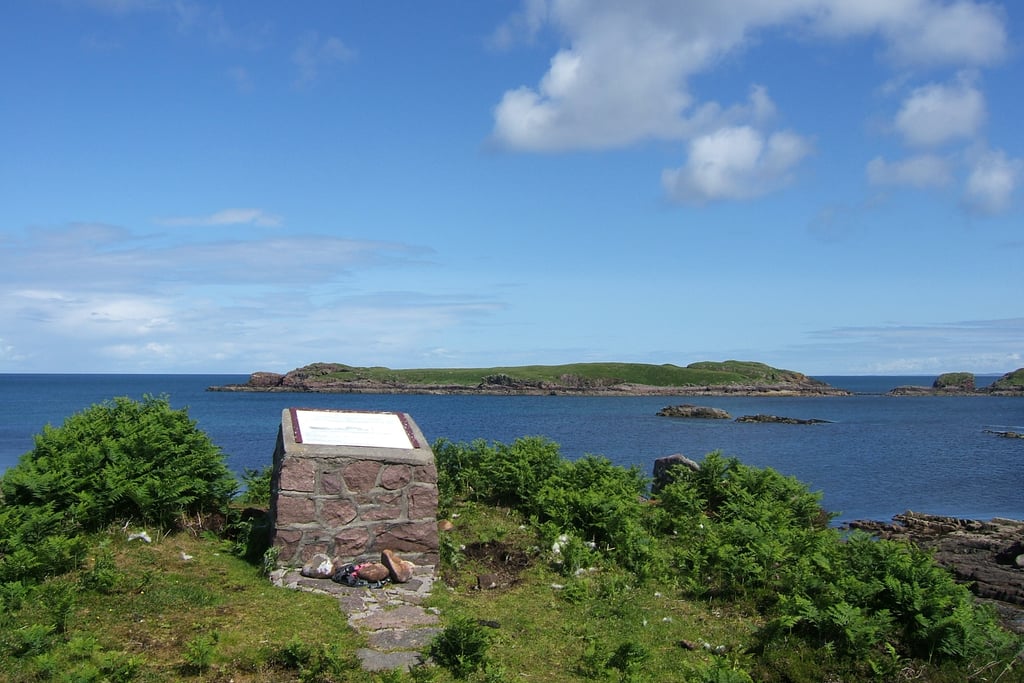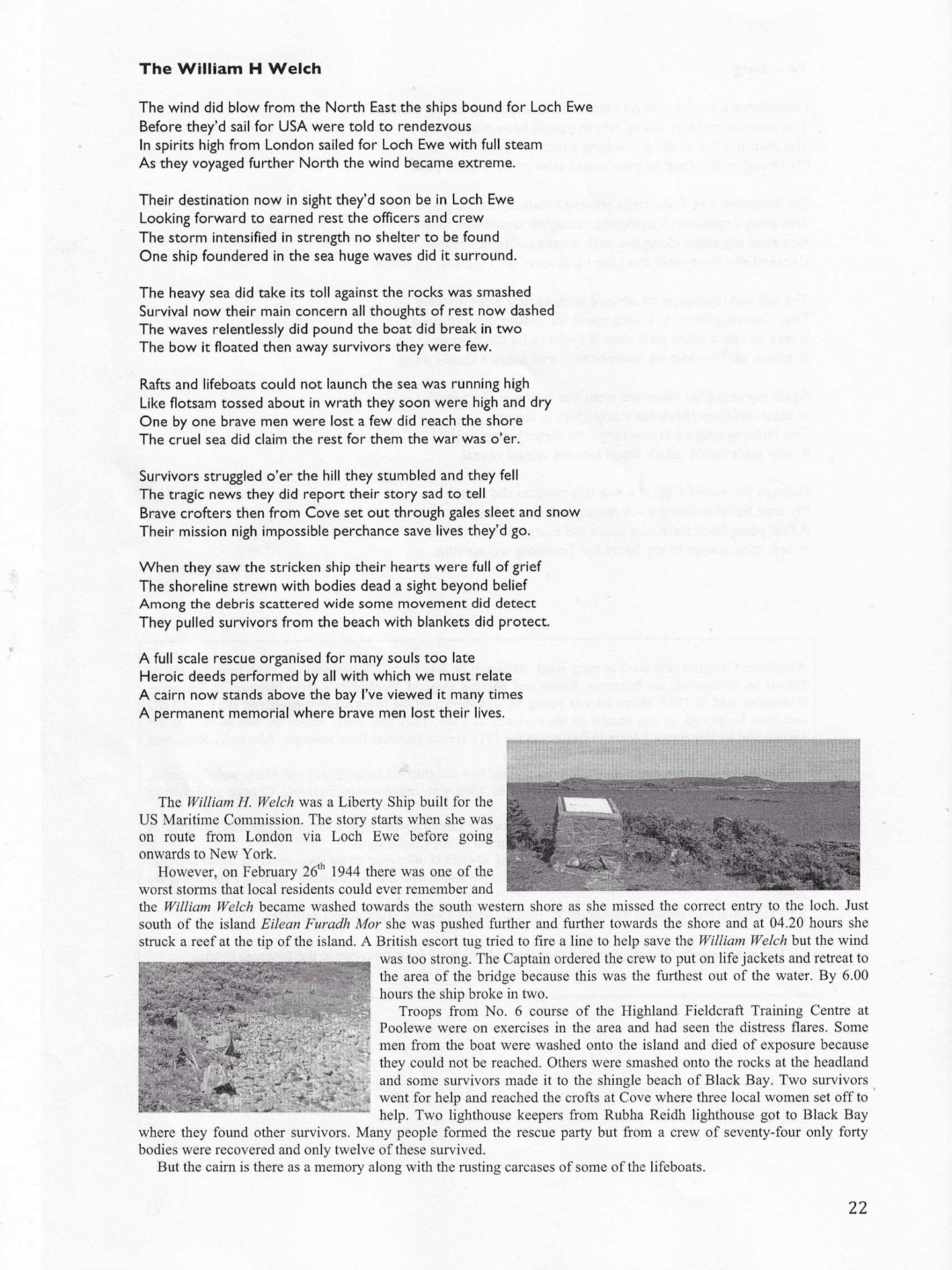FROM INVERASDALE TO POOLEWE - HECTOR MACKENZIE'S SONGS
The William H Welch
tune – Sailor Boy
The wind did blow from the North East the ships bound for Loch Ewe
Before they’d sail for USA were told to rendezvous
In spirits high from London sailed for Loch Ewe with full steam
As they voyaged further North the wind became extreme.
Their destination now in sight they’d soon be in Loch Ewe
Looking forward to earned rest the officers and crew
The storm intensified in strength no shelter to be found
One ship foundered in the sea huge waves did it surround.
The heavy sea did take its toll against the rocks was smashed
Survival now their main concern all thoughts of rest now dashed
The waves relentlessly did pound the boat did break in two
The bow it floated then away survivors they were few.
Rafts and lifeboats could not launch the sea was running high
Like flotsam tossed about in wrath they soon were high and dry
One by one brave men were lost a few did reach the shore
The cruel sea did claim the rest for them the war was o’er.
Survivors struggled o’er the hill they stumbled and they fell
The tragic news they did report their story sad to tell
Brave crofters then from Cove set out through gales sleet and snow
Their mission nigh impossible perchance save lives they’d go.
When they saw the stricken ship their hearts were full of grief
The shoreline strewn with bodies dead a sight beyond belief
Among the debris scattered wide some movement did detect
They pulled survivors from the beach with blankets did protect.
A full scale rescue organised for many souls too late
Heroic deeds performed by all with which we must relate
A cairn now stands above the bay I’ve viewed it many times
A permanent memorial where brave men lost their lives.
‘The war at an end’ – when the 2nd World War ended, life in and along Loch Ewe slowly returned to what could be called normal. Today although there are more houses and vehicles, life cannot be that different to the world of the 1930s and before. Maybe there aren’t the fishing boats. And there weren’t the tourists then. But ‘life in the slow lane’ continues.
Loch Ewe in war time was so different. Because a German U-boat penetrated Scapa Flow in Orkney and sunk one of the ships, the Royal Oak, in December 1939 that base was felt to be unsafe. So until its defences were strengthened Loch Ewe was chosen as an alternative. Loch Ewe was large and well-sheltered. Its entrance was narrow and it was deep enough for large ships to anchor. Therefore, it was used as a base for the Fleet and as an assembly point for the Arctic Convoys – for those merchant ships which sailed over the most hazardous of seas to reach Russia.
Much has been written recently about the activity in Loch Ewe but in those days of war the area was top-secret. It is difficult to imagine the calm blue waters of the loch with its island, Isle Ewe, in the centre being packed with ships, like sardines in a can. It was said that one could walk across the loch from boat to boat! Look carefully and one can see many remains of wartime buildings, of gun platforms and hut bases. Now the memories of these years are being gathered together – never to be forgotten.
Ian Cameron, the Bard, was a prisoner of war and during his incarceration would think about climbing Creag Chomhaidh and would compose future songs which later he would be able to write and publish.
So did the Bard, when he climbed Creag Chomhaidh once the war was over, look down over the water and remember a world that was once turned upside down?




Memories
Songs celebrating history, people, and places of Wester Ross.
© 2025. All rights reserved.